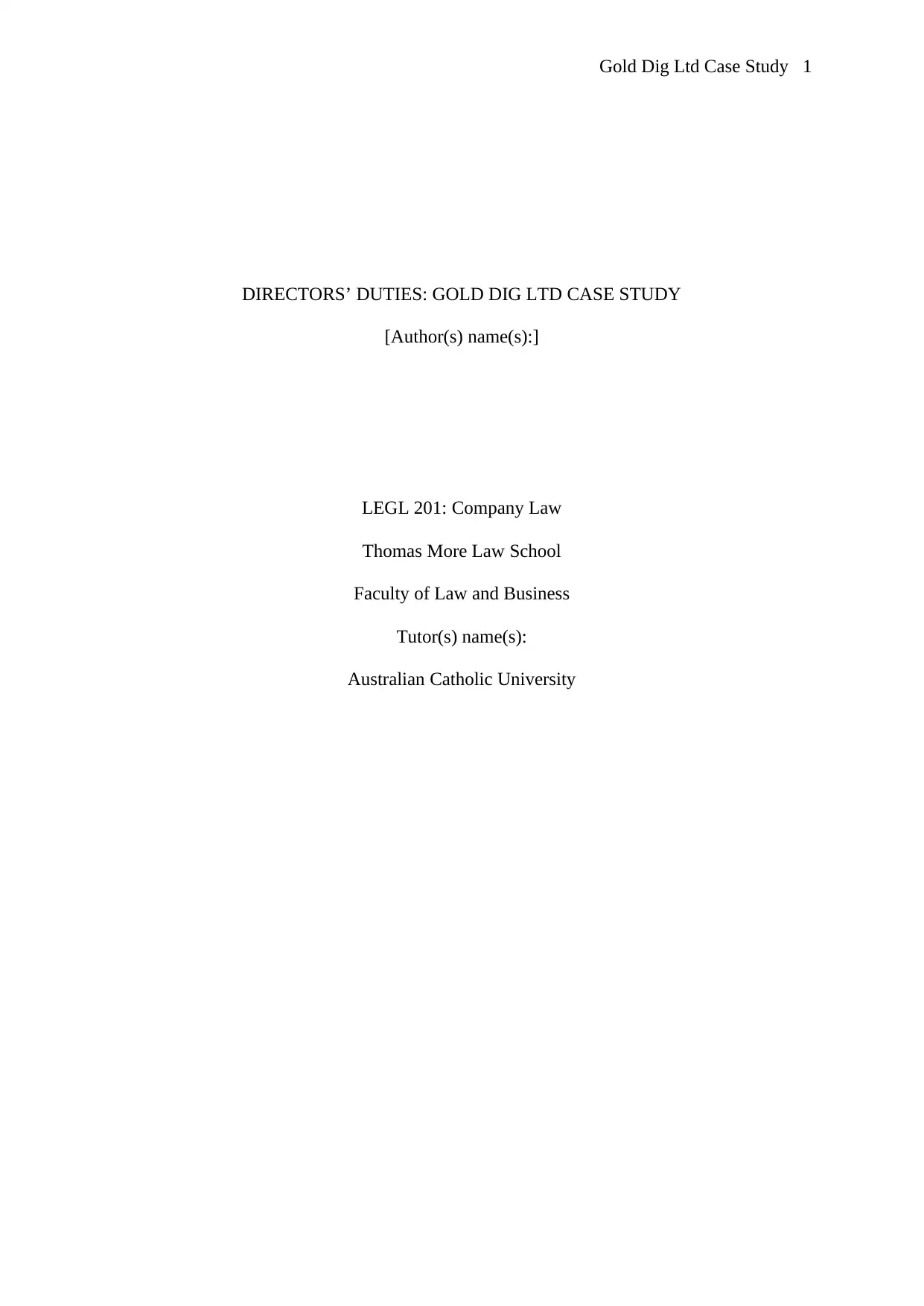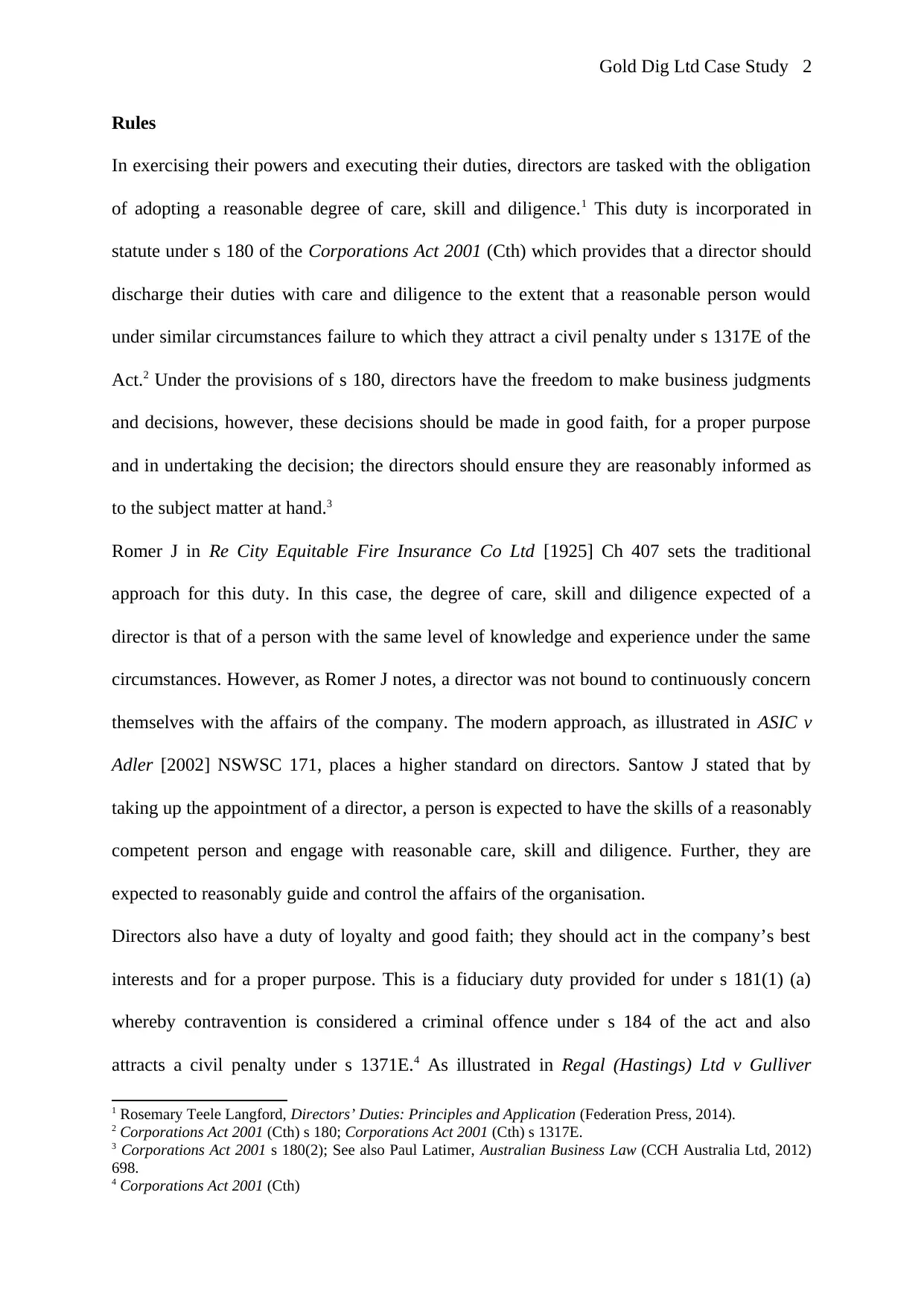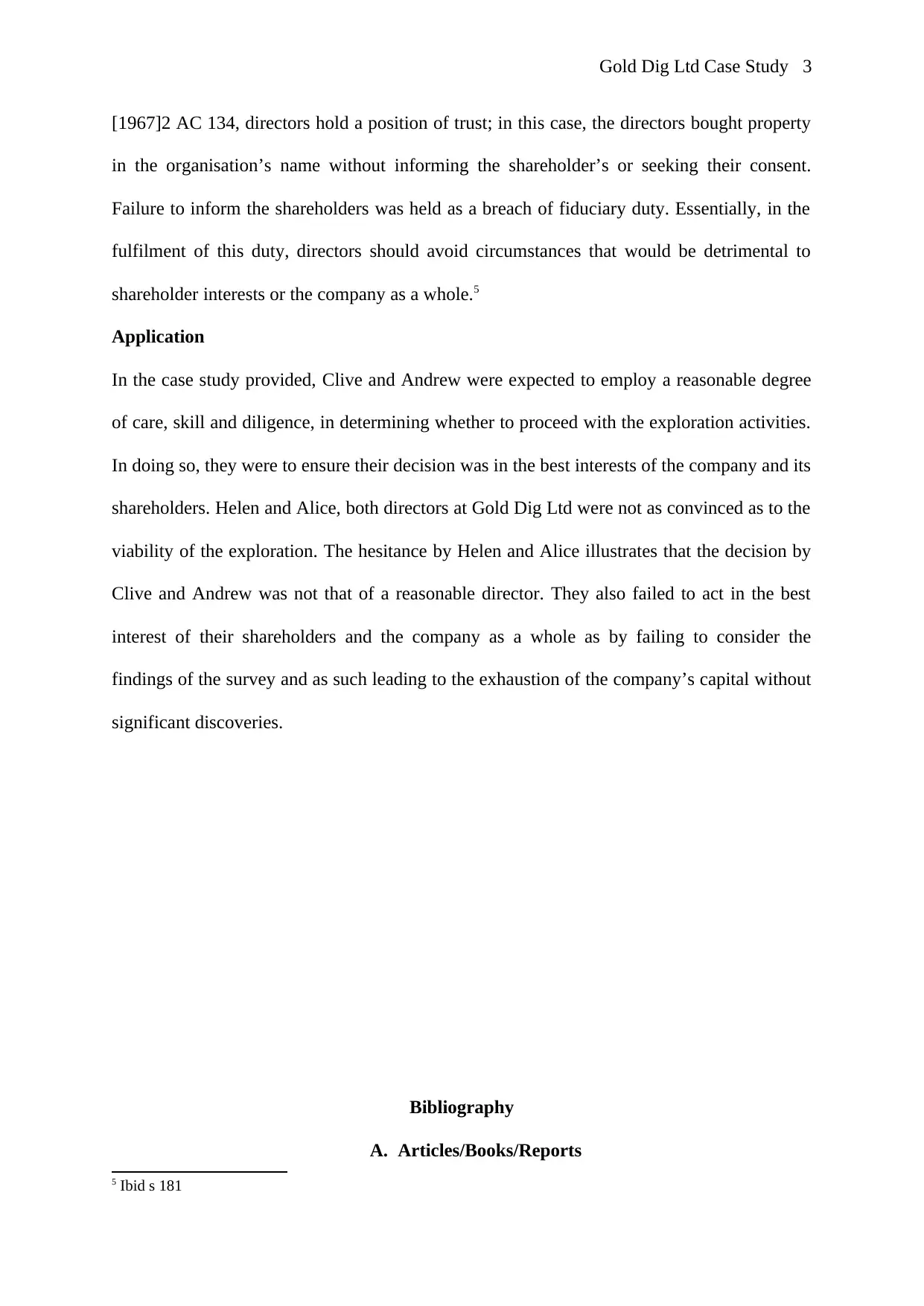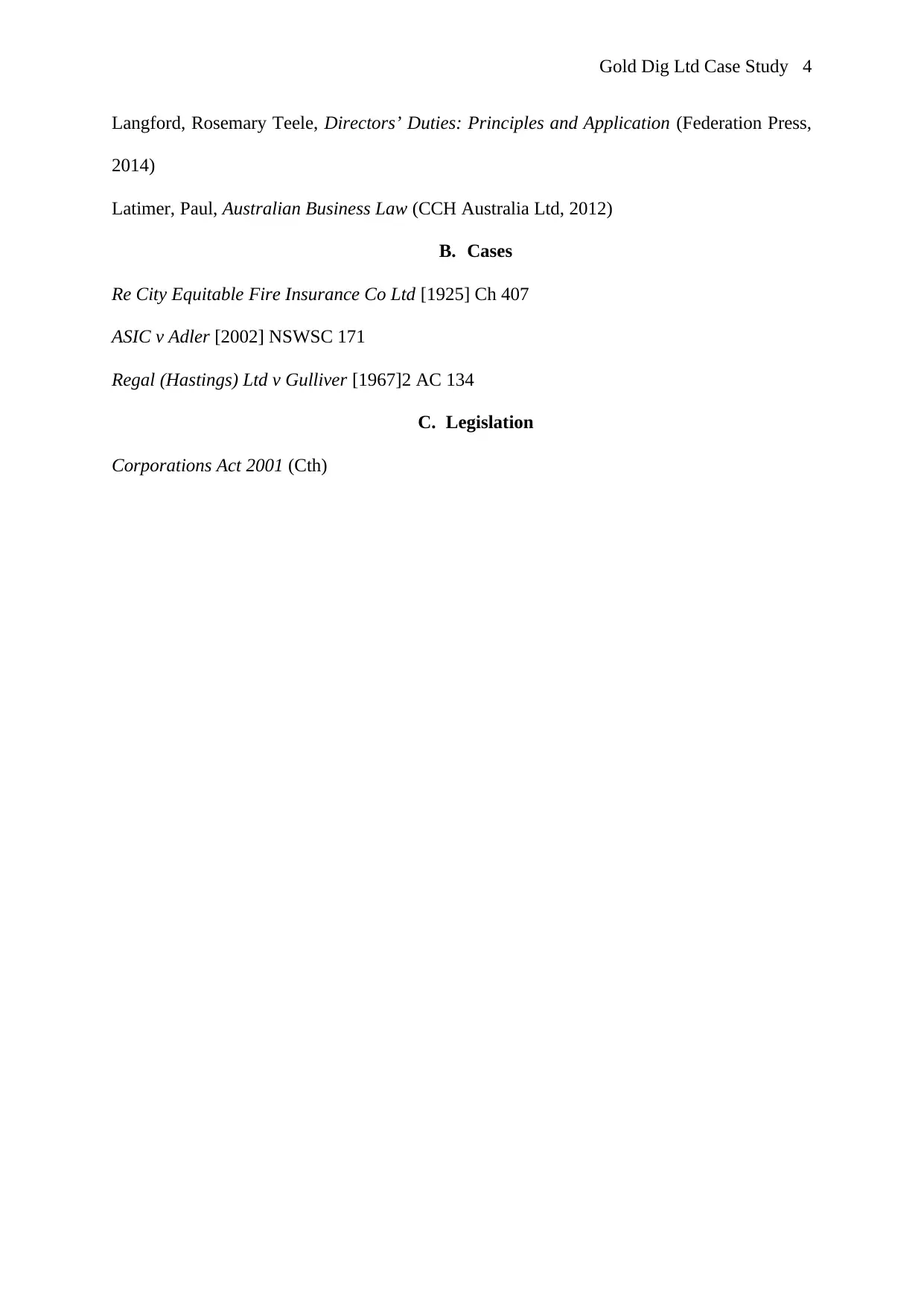Directors' Duties and Liabilities: Gold Dig Ltd Case Study - ACU Law
VerifiedAdded on 2023/06/12
|4
|817
|292
Case Study
AI Summary
This case study examines the directors' duties within Gold Dig Ltd, focusing on the obligations of care, skill, diligence, and loyalty expected of directors under the Corporations Act 2001 (Cth). It analyzes whether Clive and Andrew exercised reasonable judgment in pursuing exploration activities, considering the concerns raised by Helen and Alice. The study applies relevant legal principles from cases such as Re City Equitable Fire Insurance Co Ltd, ASIC v Adler, and Regal (Hastings) Ltd v Gulliver to assess potential breaches of fiduciary duty and the duty of care. The analysis concludes by evaluating whether the directors acted in the best interests of the company and its shareholders, particularly in light of the company's financial situation and exploration outcomes. Desklib provides access to similar solved assignments.
1 out of 4











![[object Object]](/_next/static/media/star-bottom.7253800d.svg)